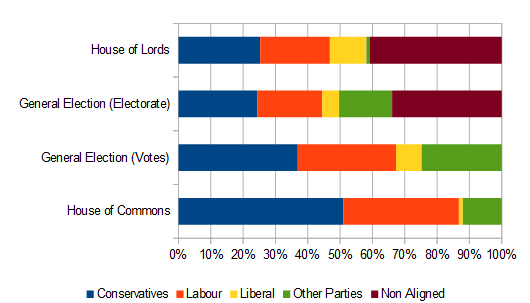We like to think that we elect governments – and most parties encourage this view with national campaigning, leaders’ debates and an emphasis on party discipline.
But we actually elect representatives to form a Parliament. It is members of that Parliament that vote to support a government and they decide issues rather than us. In that respect our democracy is “indirect”.
We are being progressively encouraged to think that more “direct” democracy is “better”. Witness the introduction of Police and Crime Commissioners and the push for directly elected mayors.
I think this is wrong and that, for reasons of coherence and accommodating diversity, indirect democracy has a lot going for it.
This is particularly so as we face a potentially complicated hung parliament. This means that we are unlikely to have a government with a clear parliamentary majority – we will not have “elected a government”. So it will be up to our MPs, as a Parliament, to decide who forms the executive. This requires them to act as parliamentarians not as party hacks wedded to a series of “red-line promises”, “manifesto pledges” and “policy millstones”.
Continue reading →
 Tim Farron @timfarron 1 day
Tim Farron @timfarron 1 day 